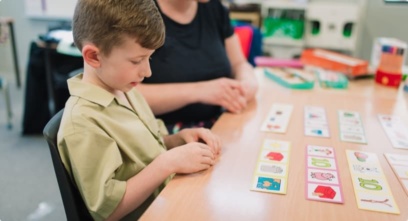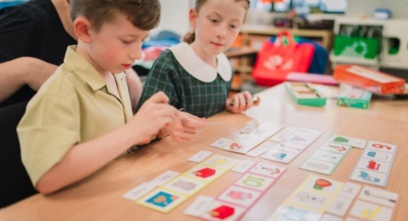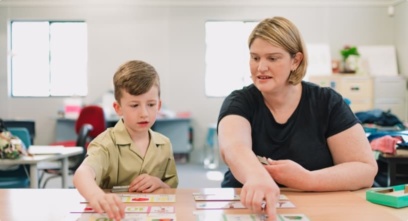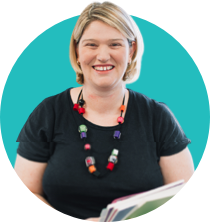About Dyscalculia In Kids & School-Aged Children
Dyscalculia in kids and school-aged children can make it difficult to understand and use math concepts. This can make it hard to do things like telling time, knowing how much change to expect from a purchase or completing simple math equations. At Language & Learning, we help educators, such as teachers, with strategies and teaching methods for dyscalculia.
Dyscalculia is a term used to describe difficulties learning number-related concepts or using the symbols and functions to perform math calculations. Problems with math can include difficulties with number sense, memorising math facts, math calculations, math reasoning and math problem solving.
Language skills also impact a child’s skills in Mathematics. The subject specific vocabulary and terminology that requires familiarity with prefixes and suffixes of Latin and Greek origin can prove challenging for students. In addition, the cumulative nature of the skills required can leave children with gaps in their learning causing difficulties at high grades.
Our Teaching Methods For Dyscalculia
Kathryn has trained in teaching methods for Dyscalculia with Steve Chin and Judy Hornigold, Multisensory Math 1 with Marilyn Zecher, designing effective intervention in mathematics with Dr Sarah Powell and the multi sensory program Maths u See.
Kathryn works with schools, teachers, speech pathologists, parents and children with teaching strategies to assist children with dyscalculia. By using effective teaching strategies for dyscalculia, children with dyscalculia can minimise the impact that dyscalculia has on their learning.
Kathryn has a keen interest in the impact of language on the learning of mathematics, the importance of manipulatives and the role of the Concrete – Representational – Abstract Explicit instructional sequence.








